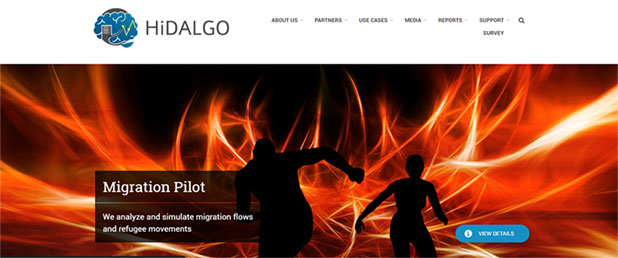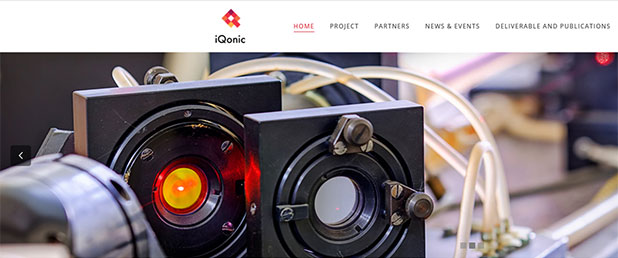Two ongoing research projects at Brunel University London have been given recognition by the European Commission, as part of its Innovation Radar initiative, as producing excellent technological and scientific advances.
Both added to the Innovation Radar platform today, the innovations resulting from the Horizon-2020-funded projects HiDALGO, by simulation scientist Dr Derek Groen, and IQONIC, by systems engineer Dr Ali Mousavi, were assessed by independent experts as being of high quality – and worthy of demonstration to a global audience.
They have commended how Dr Groen and his project team across Europe have used advanced high-performance computing to model and simulate patterns of human migration as refugees flee conflicts, resource scarcity and economic hardship. Based on publicly available refugee, conflict and geospatial data, these simulations can help governments and NGOs to allocate humanitarian resources better – improving the lives of those in need.

“It's a huge privilege to be able to use some of Europe's largest supercomputers to develop forecasts of where forcibly displaced people may arrive,” said Dr Groen, of Brunel's Department of Computer Science.
“Within our team we aim to make reliable forecasts and to make sure that these forecasts help humanitarian organisations, for example such that they can more effectively prepare their camps for incoming migrants during times of conflict.”
Dr Ali Mousavi and colleagues have created a framework to improve the whole ‘manufacturing and use’ lifecycle of opto-electronics: electronic components which emit or detect light, and which are used in telecommunications, manufacturing machinery, inspection devices and more. The researchers have enabled a way to produce these with zero defects by carefully controlling all aspects of design, production, use and re-use.

“The proliferation of opto-electronics has increased demand for such high-precision science and technology, forcing the micro-electronics and opto-electronics industries to increase production rates and automation,” said Dr Mousavi, of Brunel's Department of Mechanical and Aerospace Engineering, “and defective products are costly and bad for the environment.
“We are at the brink of creating highly smart manufacturing systems that not only feel the potential for a defect, but also advise the downstream resources to adjust and correct the pathway to prevent the defect. This smart apparatus will also, for the first time, be able to evaluate the level of reusability and recyclability of near-defective or defective products, resulting in high-quality production rates and near-zero waste production.”
The Innovation Radar is the European Commission’s data-driven method focused on the identification of high-potential innovations and the key innovators behind them in EU-funded research and innovation projects. Their data is used to categorise the innovations in terms of market maturity and disruptive potential, and they support innovators by suggesting a range of targeted actions to assist them in fulfilling their potential in the market.
For the innovations from Drs Groen and Mousavi, the announcement states that their inclusion in the initiative could open up new opportunities for the academics to partner with business or academic organisations and trigger interest from potential customers or investors in their innovations.
The two innovations join 12 others from Brunel listed on the Innovation Radar website, added since its launch in April 2018.
Prof Geoff Rodgers, Brunel’s Vice-Provost for Research, commented: “Our growing presence on Innovation Radar is evidence of our researchers’ ability to turn their ideas into internationally significant solutions to societal, business and environmental problems, as Derek and Ali have so ably demonstrated.”
Reported by:
Joe Buchanunn,
Media Relations
+44 (0)1895 268821
joe.buchanunn@brunel.ac.uk